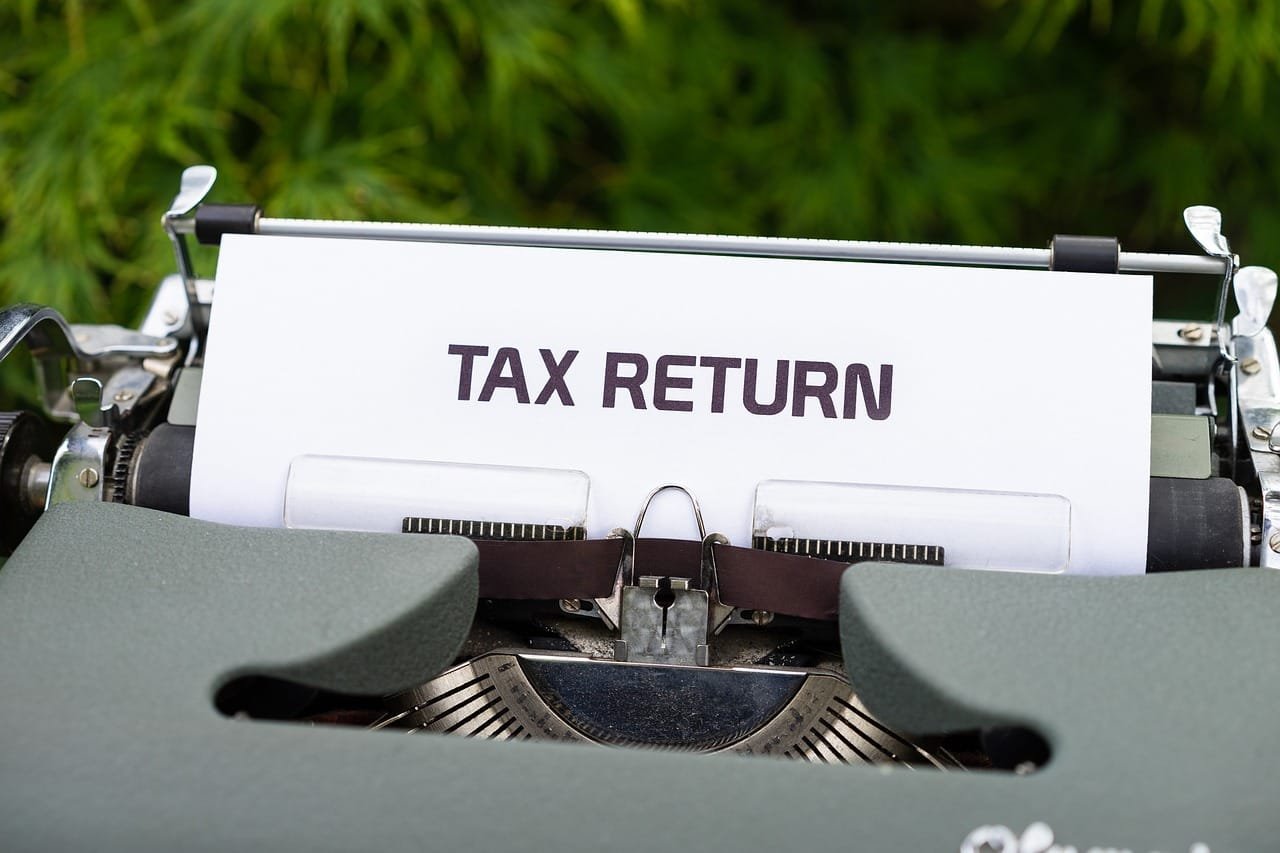Navigating the world of taxes as a freelancer in the UK can seem daunting, but with the right guidance, it can become a straightforward aspect of your business management. Understanding how to handle your tax identification properly not only ensures you stay compliant with HM Revenue and Customs (HMRC) but also optimizes your tax benefits. This guide will walk you through everything you need to know about tax identification, from securing your Unique Taxpayer Reference (UTR) to leveraging it for tax efficiency.
Understanding UTR vs. VAT Registration for Freelancers
Before diving into the nitty-gritty of tax IDs for freelancers, it’s essential to distinguish between the two main types you might encounter: the Unique Taxpayer Reference (UTR) and VAT registration.
Unique Taxpayer Reference (UTR)
A UTR is a must-have for any freelancer in the UK. This ten-digit number is crucial for filing your Self Assessment tax returns, which is how you report your freelance income to HMRC. Without a UTR, you can’t legally declare your income from freelancing, which could lead to penalties or legal issues down the line.
VAT Registration
While not mandatory for everyone, registering for VAT (Value Added Tax) becomes essential once your turnover exceeds the current threshold of £85,000 over a 12-month period. VAT registration is also advisable if you want to present a more professional image to business clients or reclaim VAT on business expenses. It involves charging VAT on the services you provide and submitting VAT returns, usually quarterly.
RapidFormations is an invaluable resource for entrepreneurs who seek a fast and efficient way to establish their business in the UK. Their streamlined process simplifies the complexities of company registration, especially for overseas clients. With RapidFormations, you can ensure that your business not only complies with UK laws but is also set up for success from day one. Whether you’re expanding into the UK market or starting fresh, their expertise will guide you through every step of the formation process. Try it out now!
1stFormations offers comprehensive company formation packages tailored for non-residents, making it simpler to establish your business presence.
Explore the eSeller and Prestige packages for an all-inclusive solution that covers your company registration and essential services at a discounted rate. With services ranging from registered office addresses to VAT registration, the Non-residents Package is particularly advantageous for those without a UK address. It’s designed to meet all your initial business needs while ensuring compliance with UK regulations.
The Role of UTR in Freelancer Tax Compliance
A UTR is not merely an identification number; it is a gateway to your tax responsibilities and opportunities. It’s essential for filing your Self Assessment tax returns, which is a crucial annual submission that reports your income to HMRC. It is imperative for freelancers to secure their UTR as soon as they commence their business activities to avoid any penalties for late registration.
Strategic Tax Planning with UTR: Utilizing your UTR for strategic tax planning involves more than just fulfilling compliance. It allows freelancers to manage their tax affairs with precision. By accurately reporting income and understanding tax liabilities through UTR-linked submissions, freelancers can plan for tax-efficient investments, utilize tax reliefs such as the Annual Investment Allowance, and even make informed decisions on when and how to expand business operations or diversify income streams.
Financial Record Transparency: Maintaining transparent financial records and ensuring they are linked through your UTR helps streamline any communication with HMRC, particularly in situations involving tax inquiries or audits. Clear and consistent record-keeping, underpinned by your UTR, simplifies these processes and builds credibility with tax authorities.
VAT Registration: Expanding Business Reach and Credibility
While obtaining a VAT number is mandatory for freelancers exceeding the £85,000 turnover threshold, voluntary registration can be a strategic move, especially for those aiming to enhance their professional market presence.
Enhancing Business Image: Registering for VAT voluntarily can signal to potential business clients and partners that your freelance operation is robust and established. This perception can open doors to larger clients and projects, especially with businesses that prefer or require dealing with VAT-registered entities.
Financial Management and VAT Recovery: For freelancers who incur significant VAT on business purchases, registering for VAT allows the recovery of this input tax, which can be a substantial financial advantage. Strategic VAT management involves meticulous tracking and recovery of VAT on eligible business expenses, enhancing cash flow and reducing effective costs.
Strategic Integration of UTR and VAT in Business Operations
Freelancers can benefit from integrating both their UTR and VAT registration into a cohesive business strategy. This involves:
Comprehensive Financial Planning: Use both tax identifiers to manage different aspects of your taxes more effectively. While the UTR is essential for income tax calculations, the VAT number manages sales tax implications. Together, they provide a comprehensive view of your tax profile, helping you make better financial decisions.
Adaptive Tax Strategies: As your freelance business grows, your tax strategies will need to adapt. For instance, you might start solely with a UTR but find that registering for VAT becomes advantageous as your client base grows or as you start selling more VAT-applicable services. Planning for these transitions in advance can make them smoother and ensure continuous compliance.
Professional Development and Updates: Staying informed through courses, webinars, and tax updates from HMRC can help you leverage both your UTR and VAT registration effectively. Regular updates can inform you of changes in tax thresholds, reporting requirements, and new tax opportunities, which could affect your freelance business.

Securing Your Unique Taxpayer Reference (UTR)
Obtaining a Unique Taxpayer Reference (UTR) is an essential step for every freelancer starting a business in the UK. This number is not only necessary for tax filing but also acts as a personal identifier with HM Revenue and Customs (HMRC). Here’s a deeper dive into obtaining and strategically managing your UTR to benefit your freelance operations.
How to Apply for a UTR
Registration for Self Assessment: If you haven’t already registered with HMRC as self-employed, this is where you start. You need to register as soon as you begin freelancing, ideally before you earn beyond the trading allowance of £1,000 in a fiscal year. The easiest way to register is online through the HMRC website.
Information Required: During the registration process, you’ll be asked to provide personal information and details about your freelance business. Make sure you have your National Insurance number handy, along with details about the date you started freelancing.
Receiving Your UTR: Once registered, HMRC will post your UTR to the address you’ve provided. This usually takes a few weeks, so plan accordingly, especially if you need to file a tax return soon.
Streamlining the UTR Application Process
Understanding the application process for a UTR can save new freelancers time and prevent potential issues. The first step involves registering as self-employed, which you can do as soon as you begin trading. It’s advisable not to delay this registration, as doing so promptly can help avoid any confusion or last-minute rush before tax deadlines.
Early Registration: Register for Self Assessment as soon as you start your freelance activity. This proactive approach ensures you receive your UTR well in advance of needing to file your first tax return.
Accurate Information: When registering, make sure all the information you provide is accurate and up-to-date. This includes your personal details, start date of self-employment, business type, and expected annual turnover. Accurate information streamlines the process and avoids the need for corrections that can delay receiving your UTR.
Follow Up: If you do not receive your UTR within the expected timeframe, which is typically within a few weeks, contact HMRC. Keeping track of your application status and following up if necessary can prevent delays in your business operations and tax compliance.
Utilizing Your UTR for Effective Tax Management
Once you have your UTR, integrating it effectively into your business processes is crucial for managing your taxes efficiently.
Integration with Financial Systems: Incorporate your UTR into all your financial management systems. Whether you use traditional accounting methods or software, ensure that your UTR is linked to all financial transactions. This integration helps in maintaining accurate records, simplifying tax filing, and facilitating any communication with HMRC.
Tax Planning: With your UTR, you can start strategic tax planning. Analyze your income patterns and expenses to make informed decisions about tax-saving investments, allowable deductions, and eligible reliefs. For example, you might decide to adjust your work-related purchases or investments at the end of the tax year to optimize your tax position.
Secure and Accessible Storage: Keep your UTR secure yet easily accessible. You will need this number not only for tax filings but also for any correspondence with HMRC. Consider using secure digital storage solutions where you can quickly retrieve your UTR and other important tax documents when needed.
Leveraging UTR for Business Growth
A UTR also plays a strategic role in the growth and scalability of your freelance business.
Proof of Legitimacy: When dealing with new clients or financial institutions, your UTR serves as proof of your legitimacy as a business. This can be particularly important when bidding for large contracts or seeking business loans.
Preparation for Expansion: As your business grows, you might consider transitioning from a sole trader to a limited company. Your UTR will be essential during this transition, serving as a reference point for your business’s tax history, which can be crucial for financial assessments or when establishing new business credit.
Handling VAT Registration
VAT registration is a significant step for freelancers in the UK, particularly those experiencing growth or planning to expand their business reach. Understanding when to register, how to manage VAT responsibilities, and leveraging VAT for strategic advantages can be transformative for your freelance operations.

When and How to Register for VAT
- Mandatory vs. Voluntary Registration: You must register for VAT if your turnover in the last 12 months was over £85,000, the current threshold for 2022/2023. However, you can register voluntarily if your turnover is lower, which could be beneficial if you make a lot of VAT-chargeable purchases.
- Online Registration: The fastest way to register for VAT is online through HMRC’s website. You’ll need to create a Government Gateway user ID if you don’t already have one.
- Information Required: For VAT registration, you will need detailed information about your business, including your UTR, business activity, bank details, and an estimate of your taxable turnover.
Integrating VAT into Your Freelance Operations
- Updating Invoicing: Once registered, you must start charging VAT on all eligible goods and services. Update your invoicing templates to include your VAT number and the correct VAT rate.
- Accounting for VAT: You will need to keep accurate records of all VAT you charge and pay. This includes keeping all invoices and receipts as proof of VAT transactions.
- Filing VAT Returns: You must file VAT returns usually every quarter, summarizing your sales and purchases and the VAT collected and paid. You will pay HMRC the difference if you collected more VAT than you paid or claim a refund if the opposite is true.
Strategic Timing for VAT Registration
While VAT registration is mandatory once your turnover exceeds £85,000 over 12 months, many freelancers choose to register voluntarily. The decision to register for VAT should not be taken lightly, as it introduces both opportunities and obligations.
Consider Your Client Base: If your primary clientele are businesses that are themselves VAT registered, they will be able to claim back the VAT you charge. In this scenario, voluntary VAT registration can make your services more appealing to larger businesses.
Assess Your Expenses: If your freelance business incurs significant VAT on business expenses, early VAT registration can be financially beneficial. By registering, you can start reclaiming VAT on your operational costs, which could lead to substantial savings.
Plan for Growth: If you anticipate that your business will surpass the VAT threshold soon, it might be advantageous to register in advance to avoid a rush of compliance activity and to smoothly transition into the VAT system.
Smooth VAT Registration Process
To register for VAT, you must complete an application either online through the HMRC website or by mailing in a VAT1 form. Here’s how to ensure this process is handled efficiently:
Gather Necessary Documentation: Before starting the VAT registration process, ensure you have all required information on hand, including your UTR, business details, bank account information, and estimates of your taxable turnover.
Understand the Scope of Your Supply: Clearly define the goods and services you offer, as some may be exempt or outside the scope of VAT. This understanding will help you accurately complete your registration and subsequent VAT returns.
Consult a Professional: Given the complexities of VAT, consulting with an accountant or tax advisor during the registration process can provide clarity and ensure that you are taking the most advantageous approach.
Best Practices for Tax ID Management
For freelancers navigating the complexities of tax responsibilities, effective management of tax identification numbers (UTR and VAT, if applicable) is crucial. Beyond basic compliance, there are strategic ways to manage these identifiers that can streamline operations, improve financial accuracy, and facilitate growth. Here’s an in-depth exploration of advanced practices for managing your tax IDs as a freelancer.
RapidFormations is an invaluable resource for entrepreneurs who seek a fast and efficient way to establish their business in the UK. Their streamlined process simplifies the complexities of company registration, especially for overseas clients. With RapidFormations, you can ensure that your business not only complies with UK laws but is also set up for success from day one. Whether you’re expanding into the UK market or starting fresh, their expertise will guide you through every step of the formation process. Try it out now!
1stFormations offers comprehensive company formation packages tailored for non-residents, making it simpler to establish your business presence.
Explore the eSeller and Prestige packages for an all-inclusive solution that covers your company registration and essential services at a discounted rate. With services ranging from registered office addresses to VAT registration, the Non-residents Package is particularly advantageous for those without a UK address. It’s designed to meet all your initial business needs while ensuring compliance with UK regulations.
Systematic Record Integration
Integrating your tax IDs into all financial systems and processes is paramount. This integration ensures that every transaction is properly recorded against your tax records, which simplifies reporting and reduces the risk of errors during tax submissions.
Financial Software: Use accounting software that allows you to input your UTR and VAT number, ensuring these numbers are automatically included in all relevant financial documents such as invoices, receipts, and tax returns. Modern software can also help track your earnings against the VAT threshold, alerting you when registration might become necessary.
Consistent Documentation: Ensure that all business documents, not just invoices, reflect your tax IDs where necessary. This includes business contracts, official correspondences, and financial statements. Consistency in how your tax IDs are used and displayed reinforces the legitimacy and professionalism of your freelance operation.
Proactive Compliance Monitoring
Staying proactive in your tax compliance can prevent many common issues that freelancers face with HMRC.
Regular Reviews: Schedule regular reviews of your tax records and practices, ideally quarterly. These reviews can coincide with your VAT reporting if you are registered. Check that all transactions are correctly recorded and that your tax IDs are being used appropriately across all platforms.
Compliance Alerts: Set up alerts for key tax dates, including VAT return submissions, tax payment deadlines, and the due date for your Self Assessment tax return. Many financial software packages offer this feature, ensuring you never miss a deadline.
Engage with Updates: Tax regulations can change frequently. Engage actively with HMRC bulletins or updates from your tax advisor to ensure your practices remain compliant with current laws. This is especially important around the annual budget announcements, as tax rates and thresholds could impact your business.
Strategic Tax ID Utilization
Your tax IDs are not just tools for compliance; they can be leveraged to enhance your business strategy.
Financial Planning: Use your UTR to access detailed records of your past tax submissions, which can help in forecasting your future tax liabilities. This information is invaluable for financial planning and budgeting, especially when planning large purchases or scaling operations.
Credit and Financing: When applying for business loans or credit, having a well-managed tax ID record can prove your reliability and financial organization to potential financiers. Demonstrating compliance and sound financial management through your tax ID management can improve your eligibility for financing.
Networking and Credibility: In some business networks or professional groups, showing that you are VAT registered can enhance your credibility. Use your VAT status strategically in marketing materials and proposals to attract larger clients who prefer or require dealing with VAT-registered freelancers.
Implementing a Continuous Learning Approach
Tax management is an area where continuous learning can significantly benefit your freelance business. Attend webinars, participate in workshops, and read up on the latest in tax management and legislation. Consider joining freelancer networks where updates on tax matters are regularly shared.
Exploring Tax Deductions and Allowances for Freelancers in the UK
For freelancers, maximizing tax deductions and taking full advantage of allowances can significantly reduce tax liability and enhance financial efficiency. Understanding what you’re entitled to and how to claim these benefits can make a substantial difference in your annual tax bill.

Key Tax Deductions for Freelancers
Home Office Expenses: Many freelancers work from home, making them eligible to claim home office expenses. This includes a portion of utility bills, property insurance, mortgage interest or rent, and maintenance costs that directly relate to the work area. The calculation can be based on the proportion of the home used for work, but HMRC also offers a simplified flat rate deduction.
Equipment and Supplies: Purchasing equipment such as computers, software, or other tools necessary for your freelance activities can be claimed as capital allowances. Immediate write-offs or depreciation over several years are possible, depending on the item’s nature.
Travel Expenses: If you travel for business, these costs can be deductible. This includes mileage for using your own vehicle, train or bus fares, parking fees, and even reasonable meal costs for longer trips. However, commuting between home and a regular workplace does not qualify.
Professional Fees: Membership dues for professional bodies or subscriptions to trade journals relevant to your freelance business are deductible. Additionally, fees paid for professional services like accountants or lawyers specifically for business operations can also be claimed.
Insurance and Security: Business insurance premiums, such as public liability insurance or professional indemnity insurance, are fully deductible. Security measures, like cybersecurity software, are also essential and deductible expenses given the increasing reliance on digital platforms.
Maximizing Allowances
Personal Allowance: For the tax year 2022/2023, the standard personal allowance is £12,570, which is the amount of income you can earn before you start paying income tax. Ensure you’re not paying tax on income below this threshold.
Trading Allowance: Freelancers can benefit from a trading allowance of £1,000. This means the first £1,000 of your income from self-employment is tax-free and doesn’t need to be reported if this is your only source of income. This can be particularly beneficial for those just starting out or with minimal operating expenses.
Capital Allowances: When purchasing business assets, you can claim capital allowances, which allow you to write off the costs of these assets against your taxable income. The Annual Investment Allowance (AIA) enables you to claim up to £1 million in the same tax year the purchase is made.
Strategic Tax Planning
Use of Spreadsheets or Accounting Software: Keep meticulous records of all your income and expenses. Tools like Excel or specialized accounting software can help you track these figures accurately, ensuring you’re ready for tax time and not missing out on any deductions.
Provision for Taxes: Set aside a percentage of your income in a separate bank account for tax purposes. Estimating your tax obligations and saving accordingly can prevent financial strain when tax payments are due.
Regular Financial Reviews: Schedule quarterly reviews of your finances to assess your tax situation, adjust your savings for taxes if necessary, and ensure you’re on track with your financial goals.
Legal Compliance for Freelancers Managing Tax Identification in the UK
For freelancers, adhering to legal compliance in tax matters goes beyond simply filling out forms and meeting deadlines. It involves understanding the laws that apply to your freelance business, ensuring accurate reporting, and maintaining good standing with HM Revenue and Customs (HMRC). Here’s a detailed guide to help you navigate the complexities of legal compliance related to tax identification.
Understanding Your Legal Obligations
As a freelancer, your first step in achieving legal compliance involves obtaining the correct tax identification numbers, such as your Unique Taxpayer Reference (UTR) and possibly a VAT number if your turnover exceeds or is close to the threshold. Each of these identifiers comes with specific reporting requirements:
UTR: Once you have this number, you are responsible for filing an annual Self Assessment tax return. This is crucial as it details all your income sources and is the basis for calculating your tax liability.
VAT Number: If you are VAT registered, you must charge VAT on eligible goods and services, file regular VAT returns, and keep detailed records of all VAT-related transactions.
RapidFormations is an invaluable resource for entrepreneurs who seek a fast and efficient way to establish their business in the UK. Their streamlined process simplifies the complexities of company registration, especially for overseas clients. With RapidFormations, you can ensure that your business not only complies with UK laws but is also set up for success from day one. Whether you’re expanding into the UK market or starting fresh, their expertise will guide you through every step of the formation process. Try it out now!
1stFormations offers comprehensive company formation packages tailored for non-residents, making it simpler to establish your business presence.
Explore the eSeller and Prestige packages for an all-inclusive solution that covers your company registration and essential services at a discounted rate. With services ranging from registered office addresses to VAT registration, the Non-residents Package is particularly advantageous for those without a UK address. It’s designed to meet all your initial business needs while ensuring compliance with UK regulations.
Accurate Record Keeping
Maintaining accurate and thorough records is not only a cornerstone of managing your finances but also a legal requirement. Here’s what you should keep track of:
- Income and Expenses: Record all business income and expenses, keeping receipts, invoices, and bank statements organized. Digital accounting software can automate much of this process, ensuring accuracy and ease of access.
- VAT Records: If registered for VAT, you need detailed records of all VAT you charge and pay. This includes VAT sales and purchase invoices, import and export documents, and accounting books that detail your VAT accounts.
Deadlines and Penalties
Understanding and adhering to tax deadlines is critical to avoid penalties. For Self Assessment, the deadline for online submission is January 31st following the end of the tax year. For VAT, the deadlines depend on your chosen VAT accounting period but are typically one month and seven days after the end of an accounting period.
Failing to meet these deadlines or submitting inaccurate returns can lead to significant penalties. These can include fines based on the percentage of tax due and interest on late payments.
Engaging with Legal Advisors
While many freelancers manage their taxes independently, consulting with a tax advisor or an accountant can provide additional security. They can offer:
- Expert Advice: Guidance on complex tax issues, ensuring you take advantage of all available deductions and allowances.
- Compliance Checks: Review of your tax filings and records to ensure they meet legal standards.
- Representation: Assistance in dealing with HMRC, especially in the event of an audit or dispute.
Conclusion
Navigating tax identification as a freelancer in the UK is critical for ensuring compliance, optimizing financial health, and enhancing business credibility. From securing your Unique Taxpayer Reference (UTR) to understanding when and how to register for VAT, effective management of these identifiers is essential. This guide has walked you through the strategic application of your tax IDs, offering insights into not just maintaining compliance but also leveraging these elements for the betterment of your freelance operations.
By implementing the best practices outlined—integrating tax IDs into your financial systems, proactively monitoring compliance, and strategically using these identifiers to support your business goals—you can streamline your tax processes and focus more on growing your business. Remember, staying informed, continuously learning about tax regulations, and possibly consulting with tax professionals can further enhance your ability to manage taxes effectively.
Read Next:
- Ensuring Legal Compliance: How to Register Your Company in the UK
- The Pros and Cons of Different Company Structures in the UK
- Closing Your Limited Company in the UK: Steps and Considerations
- The Significance of a SAIL Address for UK Companies
- The Complete Guide to Navigating Company Registers in the UK






















Comments are closed.